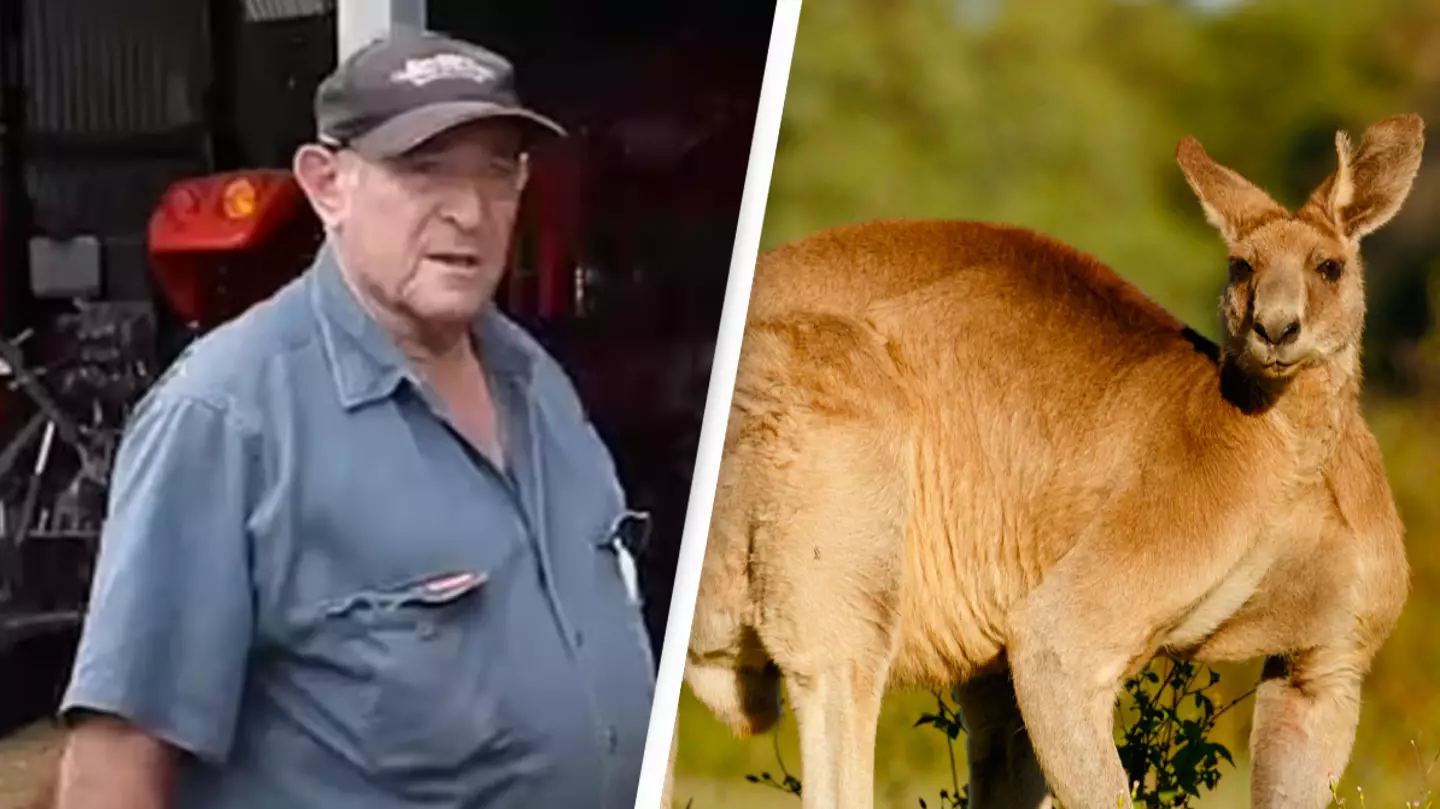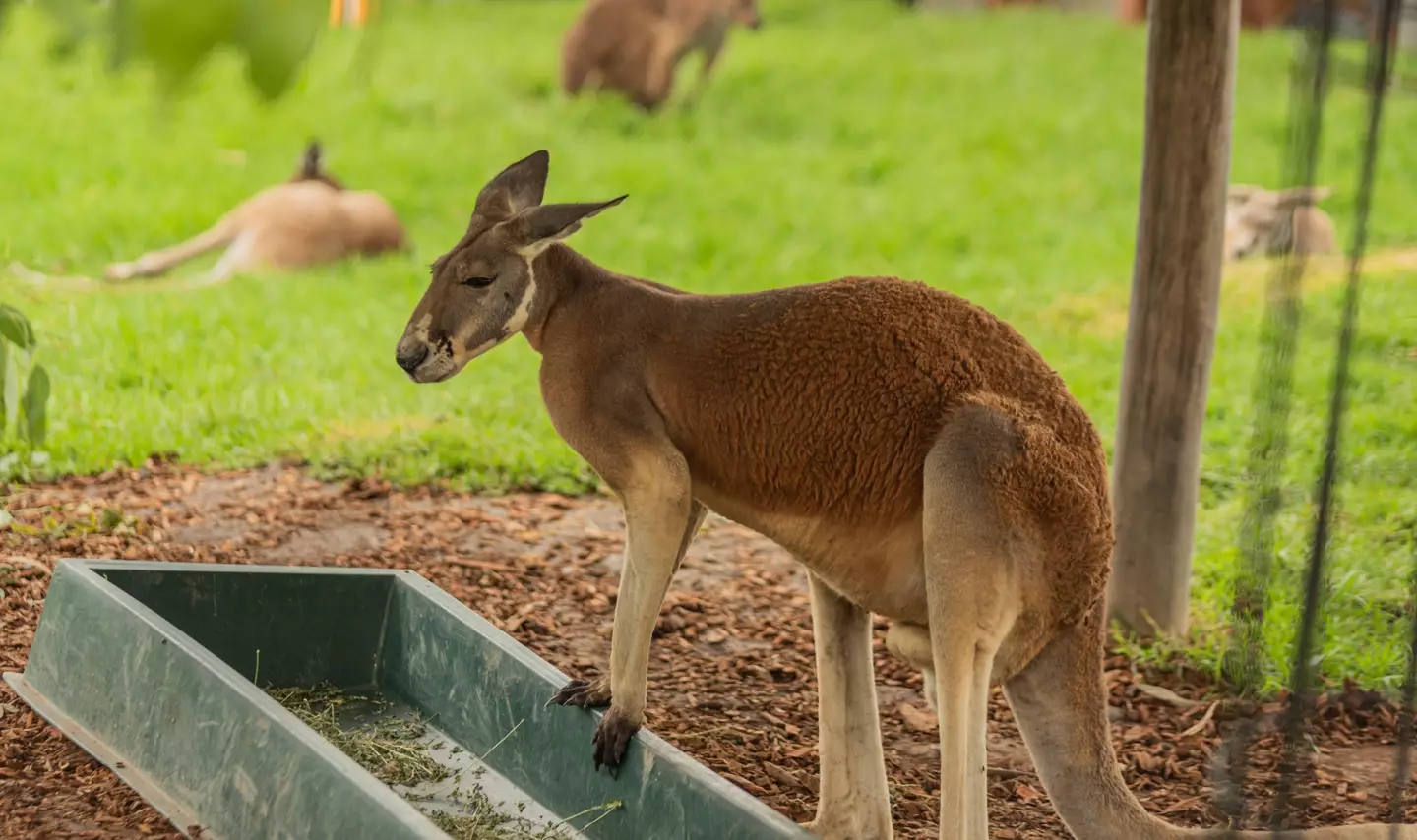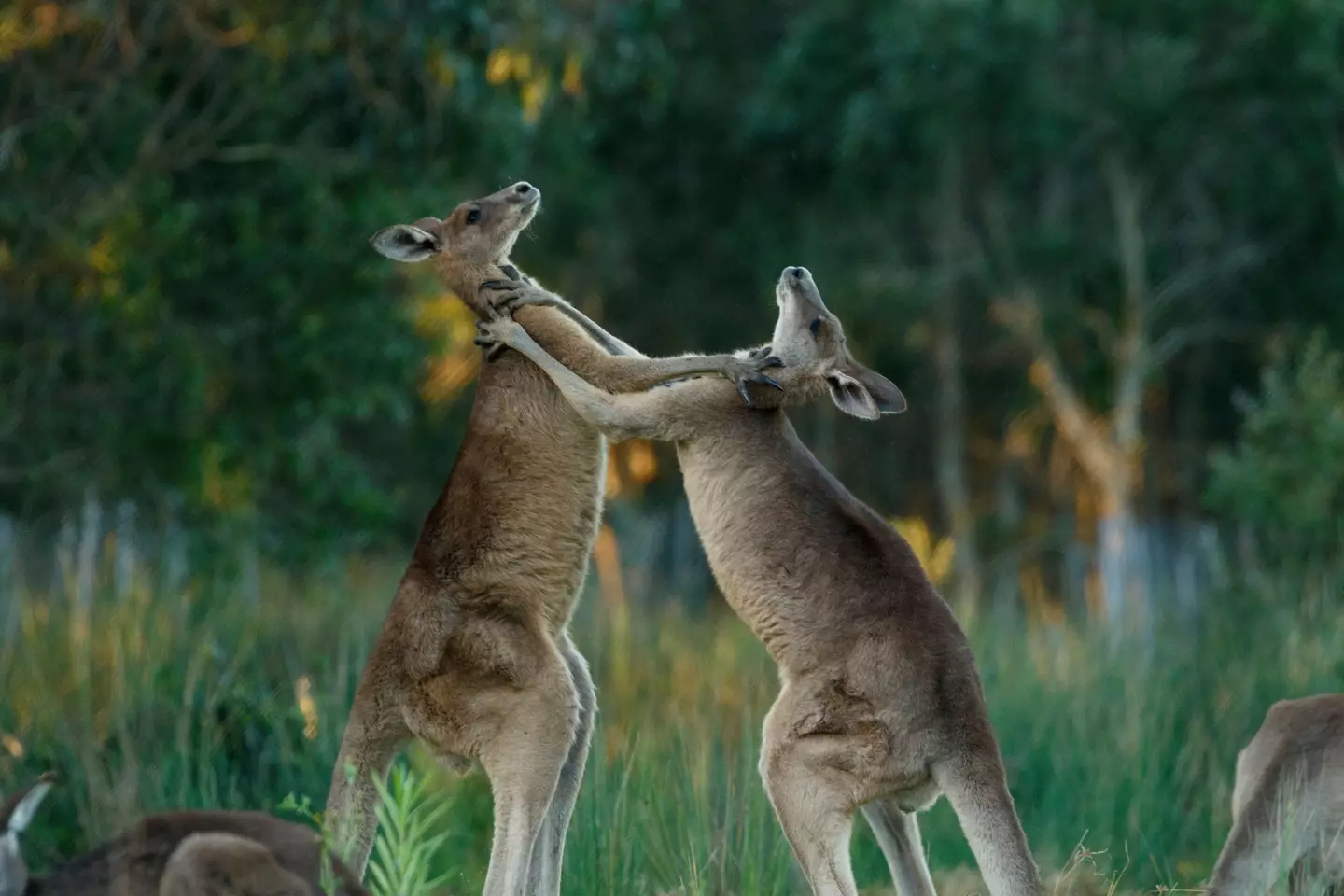
A kangaroo proved to be an 'ongoing threat' when it tried to prevent paramedics from reaching a man it had attacked.
On Sunday, 11 September, local alpaca breeder Peter Eades was found having sustained 'serious injuries'.
It was discovered that the 77-year-old had been attacked by a three-year-old kangaroo, which it's thought he'd been keeping as a pet.
Eades was found by a family member at his home in Redmond, Western Australia, however, when paramedics were called to the scene to treat him at around 5pm, they were met with a vicious obstacle.
Advert

As well as having attacked Eades, the kangaroo was reported as having made it difficult for emergency services to get to the 77-year-old to try and treat him by standing guard over his body.
Police subsequently decided to shoot the kangaroo in a bid to treat and save Eades.
A WA Police spokesperson told 9News: "The attending officers were required to euthanise the kangaroo by firearm."
Unfortunately, the 77-year-old's injuries were too severe and he passed away at the scene.
The last fatal kangaroo attack is reported as having taken place over 80 years ago in 1936 in New South Wales.
Graeme Coulson, a kangaroo behavioural expert, explained to ABC News how 'the problem with kangaroos and people is we're both upright animals, we stand on our two feet, and an upright stance like that is a challenge to the male kangaroo'.
He continued: "They don't distinguish between people and other kangaroos … and that gets particularly risky when the male grows, and becomes bigger and stronger, and then you can have problems like this."
What's more, kangaroos are 'large animals, they've got a lot of weapons, sharp nails and sharp teeth, and certainly if they're cornered or in some sort of distress, that can be quite dangerous'.
![Human's 'upright stance [...] is a challenge to the male kangaroo'.](https://images.ladbible.com/resize?type=webp&quality=70&width=3840&fit=contain&gravity=auto&url=https://images.ladbiblegroup.com/v3/assets/blt949ea8e16e463049/blt7da6659e6d45d81e/632193d4ed244215b5c90fac/2H5MBJD.jpg)
Despite this, Coulson noted that it is 'very, very rare' that kangaroo attacks end up being 'fatal'.
Although there are still precautions you should take if you come into contact with one of the animals.
Michelle Jones, a wildlife carer, reminded kangaroos are 'definitely not pets'. "They are wild animals," she stated.
She warned: "I have raised joeys that sat in the palm of my hand and hadn't even opened up their eyes yet [...] At around 18 months to three years of age, these beautiful sweet lovable [animals], which is the description I would give them up to that point, become wild animals.
"They want to spar, they want to box, and right now it's kangaroo breeding season."

A report on Eades' death is set to be given to the coroner, however, no specific details about his injuries have yet been released by emergency services.
The 77-year-old first set up his Agonis Alpaca farm in 1997 and, despite retiring, continued to own the animals as pets.
Eades had even built a cemetery for the animals and is set to be buried next to his favourite alpaca named Claudia.
Brett Fallon, the president of the Australian Alpaca Association, reflected: "His life has revolved around them for as long as I've known him.
"[It's] dreadful to hear someone so compassionate for animals would lose his life this way."
If you have experienced a bereavement and would like to speak with someone in confidence, contact Cruse Bereavement Care via their national helpline on 0808 808 1677
Topics: Australia, Animals, Health, no-article-matching